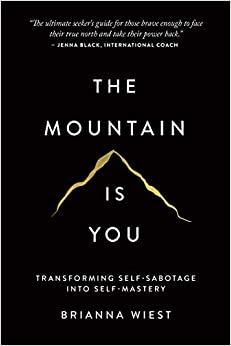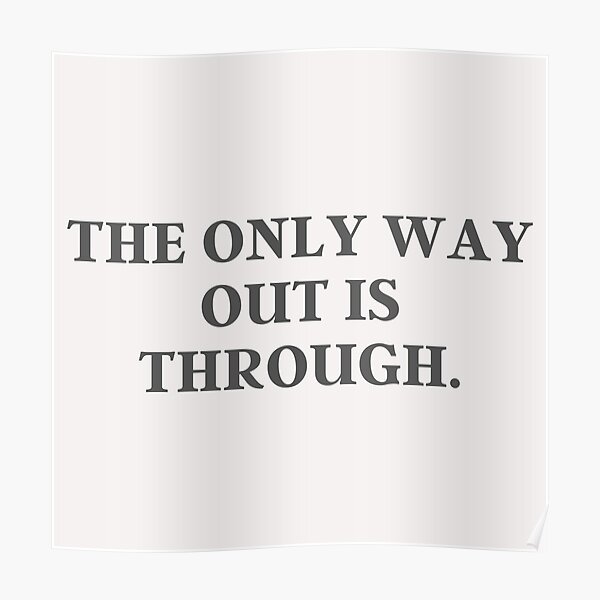
Transforming Self-Sabotage Into Self-Mastery by Brianna Wiest
Self-sabotage is a maladaptive coping mechanism that provides temporary relief to an unmet need from your subconscious. While many people associate self-sabotage with how you hurt yourself, it’s actually what happens when your brain is trying to protect you.
What self-sabotage is trying to tell you is that it’s time to reinvent yourself. The current version of you is not equipped to sustain the life you want to lead, which is why you keep running up against the same wall of stagnant impasse. Evolution is required in order to overcome self-sabotaging behavior. Despite how grandiose it might sound, this is a silent, simple, and monumental task that’s done through inward recognition rather than a series of extravagant, external gestures.
In order to master your self-sabotage, you have to mourn and release who you are right now. You’re not perfect, and that’s okay. There are aspects of your character you want to improve- that’s okay. There are areas of your life you want to explore and grow in, and that’s a good thing. These are the things that need to happen for you to become who you want to be. And doing so will require you to adopt agility, resilience, and self-compassion into your habitual instincts.
How to transform self-sabotage
Actually doing “the work” to transform self-sabotage into self-mastery requires:
- A deep psychological excavation
- Pinpointing your trauma
- Releasing unprocessed trauma
- Finding healthier strategies and coping mechanisms to meet your needs
- Reinventing your self-image
- Developing core principles like emotional intelligence and resilience
Reset your baseline
Your baseline = your comfort zone.
Your baseline speaks to your tolerance for happiness, or your capacity to allow yourself to feel good. It makes sense that when you are uncomfortable, you return to what’s familiar- even if what’s familiar is toxic or unhealthy. It’s what you know, therefore it brings you some sense of safety and stability. No matter what, your brain will always prefer to return to what feels familiar rather than sit with the vulnerability of the unknown.
“Home is where you make it, not where you find it.”
– Brianna Wiest
Problems = symptoms
Don’t think you’re done “doing the work” once you’ve identified alternative ways to manage your stress, either. To truly heal, you have to change the way your brain works and the associations it makes to triggering situations. This is the part many people miss, and therefore write off resources like this to return to their old routine. In order to conquer self-sabotage, you have to train your brain to operate from a mindset that serves the version of yourself you’re trying to grow into, not who you are now.
“Your new life is going to cost you your old one.”
– Brianna Wiest
Give yourself bite size challenges daily and measure your outcomes. Ultimately, it’s not about the intention you set, but whether or not you acted on it. Quantify your days by measuring how many healthy things you were able to accomplish. I like to use a habit tracking app to get a visual idea of my progress.
Self-sabotage nudges us to reevaluate who we are and where we still need to grow. Prioritize self-respect, enough to walk away from anything that’s no longer serving you, growing you, or making you happy. Prepare yourself for radical change. Get excited about what’s next, even if the uncertainty scares the shit out of you. Let logic and reason guide your life- not emotion. Be proactive about implementing these ideologies, because the root of your suffering comes from your inability to handle your feelings, not the feelings themselves.
“The only way out is through.”
– Robert Frost


















2 responses to “The Mountain Is You: Transforming Self-Sabotage Into Self-Mastery”
[…] only includes the absence of illness and disease, but comprises aspects like cognitive learning, emotional intelligence, resilience, coping mechanisms, spirituality, personal growth, professional development, identity, […]
[…] an attempt to help themselves, ultimately it only exacerbates the problem. To break free from this self-sabotaging cycle, lean on these procrastination […]